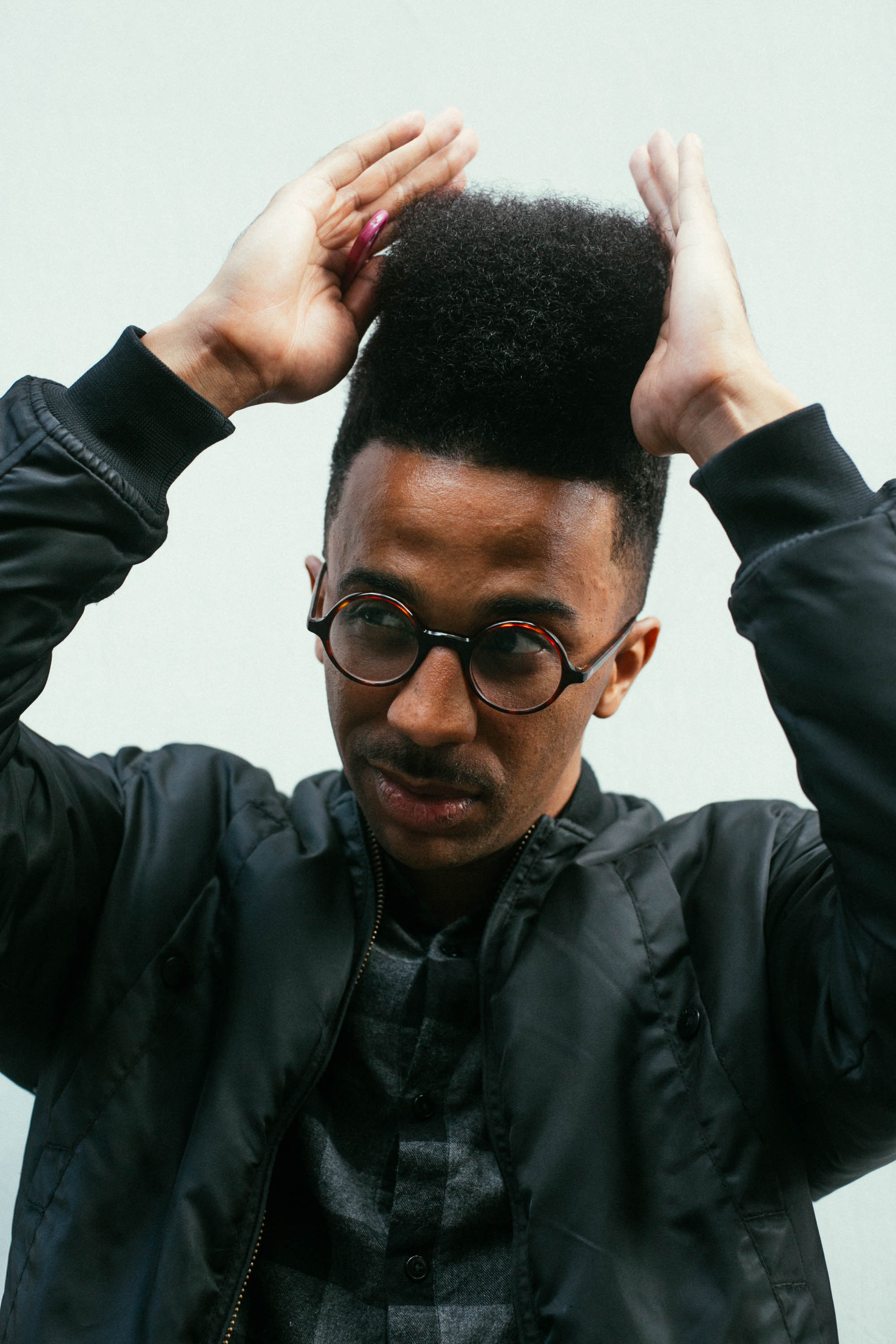We love talking with cool people from all different backgrounds and when we spotted that Vice journalist Dexter Thomas was in the Bay Area last month (thank's Twitter) we invited him over to Morphic for some a conversation on his uncompromising hairstyle choices, and how it affects his work.
Interview by MISHI NOVA
Photos by CHRISTINA E. CAMPBELL
Mishi: Hair says a lot about a person. You’re a serious journalist, and you're expressing yourself with your hair, do you feel like your hairstyle says something about the changing climate of journalism?
Dexter: It's something that I think about more than I probably should, and not my specific hairstyle per se. People say you should never read comments [on yourself], but I do because it tells you a lot about what people are thinking. And on YouTube comments, I’ll see people say, “you can’t be a serious journalist with that hairstyle.” Sometimes I do some fairly heavy stuff like the heroin epidemic or the [Oakland] fire, so people will say I’m ruining [the piece] because of my hair. Of all the things to be upset with in the piece, my hair is what ruined it for you? Of course, it’s not really about my hair, it’s about me being black and the fact that I’m expressing myself in a small way. It’s easier for them to attack my hair because it represents something else that they're not comfortable with saying. When you look at comment sections, women and LGBTQ journalists get attacked on an appearance basis. So, I can tell that it has nothing to do with my hair, it’s just easier to talk about than talking about my race.
“It’s easier for them to attack my hair because it represents something else that
they’re not comfortable with saying. ”
M: It must be hard because, at the same time, your hair makes you lovable too. I’m a fan because your hair says to me you’re being true to yourself. Did you ever think about that?
D: There have always been times where I've been made aware that my hairstyle is “not appropriate” for whatever I'm supposed to be doing. I would go abroad representing someone, and people would say “you need to cut your hair for this,” and I would say no. I was teaching on a high school campus, and I was banned from campus for wearing a [hair] pick in my hair. They said I couldn't wear a pick in my hair because it was “gang related” which obviously is not true. I did it anyway, and I was straight up told I couldn't come to the campus anymore. I say all that to say; I never set out to say, “I'm gonna ruffle feathers”, it was more kind of thrust on me. I like this hairstyle, and then people would tell me “you can’t do that, that’s not appropriate”. It would be very easy for me to say, “Oh okay, that’s not appropriate, so I’ll cut my hair” but see, I’m not gonna do that. I don’t want to say it’s resisting, but the idea that someone can come in and make me change something that I liked – I wouldn’t feel right about myself. I’m not willing to bend on that. So in my small way that’s how I say this is who I am.
M: You're talking to high profile people for VICE all the time, how does that work when you get someone who doesn't take you seriously?
D: The funny thing is, most of the people I work with, you wouldn't find us in front of the camera reporting the news. You could say it's “just window dressing” or that there’s nothing revolutionary about it. It shouldn't be revolutionary, but it is. The fact that someone says, “Hey Dexter we don’t want you to just talk to the rappers, musicians or athletes but politicians, congress people or scientists" [is important] because I'm capable of that. It’s not just me; it’s everyone on the show, you wouldn’t see them [other places] because the standard journalist is a straight white dude. We have this broad range of people, and for a lot of people, it takes a second to accept, this is who you’re gonna get to tell you the news, and you're going to take it and accept it. Eventually, you have to go "yea this is my source of information, " and I think that’s powerful. In 2017 it shouldn't be, but it is.
M: Last question, who does your hair?
D: This dude Larry at Good Barbers in LA does my hair. When I’m abroad or in upstate NY, and I’m not sure who can do my hair then I’ll do my own hair. I do okay on the shape, but the fade isn’t that good.
Dexter Thomas is a culture correspondent for VICE News, covering the intersection of identity and art. He previously wrote for the Los Angeles Times, where in 2015 he contributed to Pulitzer Prize-winning coverage of the shootings in his hometown of San Bernardino, Calif. Dexter is a PhD candidate in East Asian studies at Cornell University, and is writing a book about Japanese hip-hop.



